Coronavirus: Localised NI Covid restrictions now legally enforceable
- Published
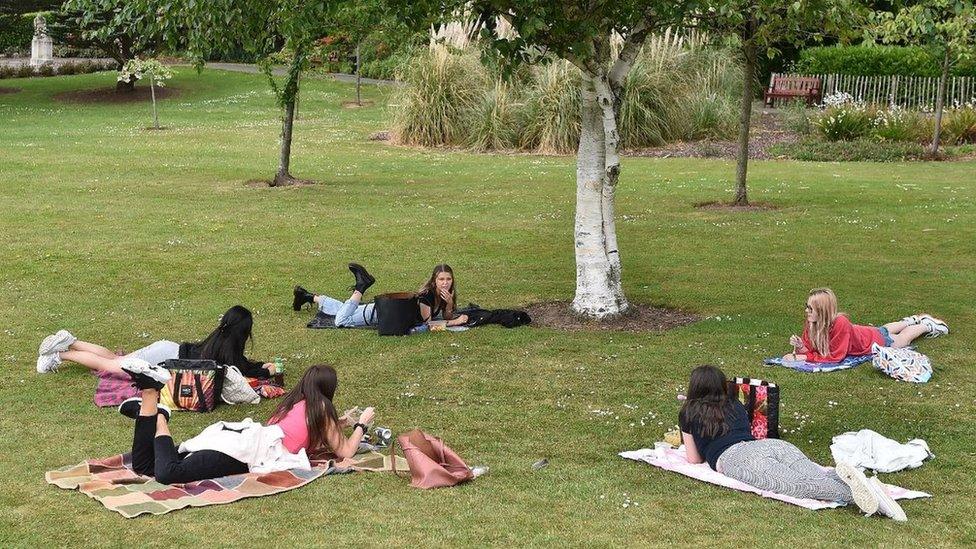
No more than six people from two households in the affected areas are allowed to gather in a private garden
The localised Covid-19 restrictions announced for parts of Northern Ireland have been made legally enforceable.
New areas in the Lisburn and Castlereagh council area have been added to the list of areas affected by the restrictions.
Previously it was announced the rules would apply to the Belfast council area, Ballymena, BT28, BT29 and BT43.
It is understood the NI Executive asked for the new areas be added to cover population links and travel routes.
East Belfast MP Gavin Robinson, who represents newly-affected areas such as Dundonald, tweeted that "clarity" was needed as to whether it was the health minister who had chosen to place tighter restrictions on the area or if the decision had been taken at a meeting of the executive.
The new rules have been introduced to limit the virus' spread.
An interactive map, external, available on the NI Direct website and expected to be updated each week, shows what areas come under the new regulations.
The department has also published a list of over 10,000 postcodes affected by the new regulations, external - many of them are in areas not previously announced by the department as coming under the renewed restrictions.
The department has said that more postcodes can now be added or removed as the pattern of the spread changes.
Allow X content?
This article contains content provided by X. We ask for your permission before anything is loaded, as they may be using cookies and other technologies. You may want to read X’s cookie policy, external and privacy policy, external before accepting. To view this content choose ‘accept and continue’.

The regulations apply to anyone living in the listed areas.
They allow no more than six people to gather in a private garden from no more than two households and rule out any mixing of households in private dwellings, with some exceptions.
The exceptions are:
Bubbling with one other household
Caring responsibilities including childcare
Building or maintenance work or the services of any trade or profession
A business operating from home
Supported living arrangements
Visits required for legal or medical purposes
A funeral
A house move
A marriage or civil partnerships where one partner is terminally ill
There's also guidance on travel, which is not legally enforceable.
Earlier, the Department of Health has confirmed two more deaths and 129 new Covid-19 cases in its latest figures.
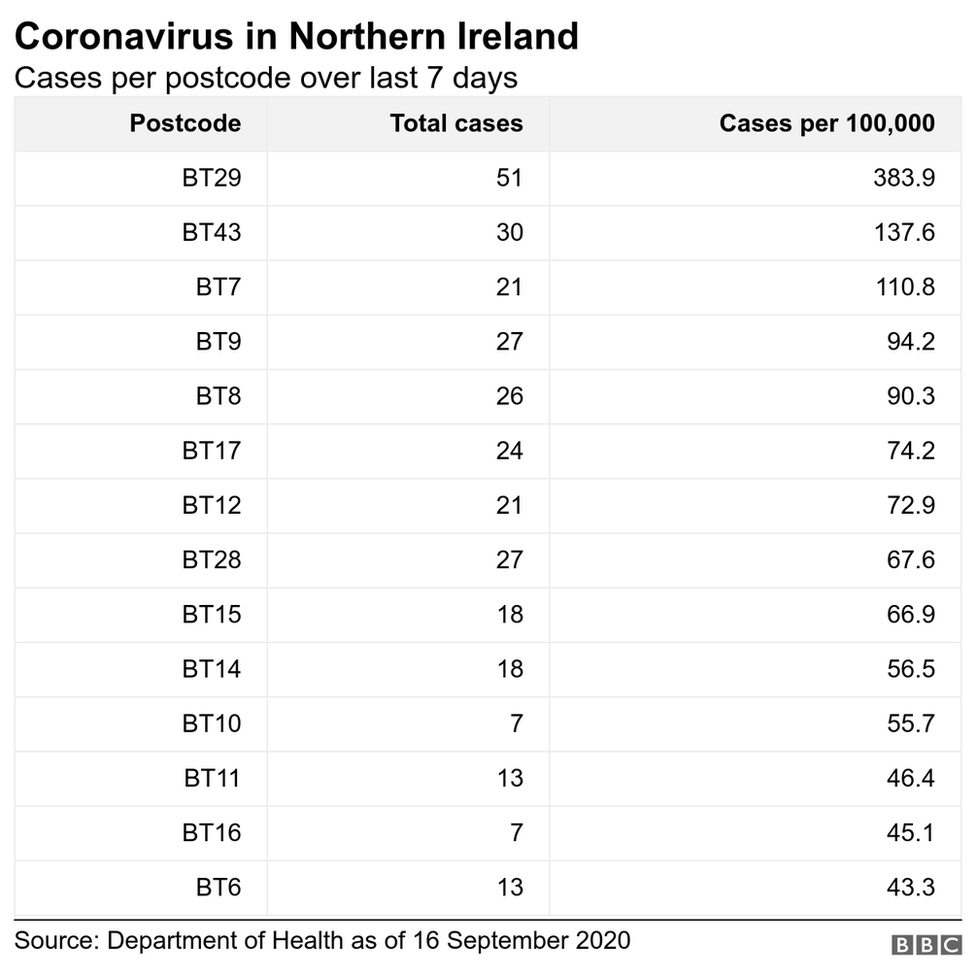
The department's death toll, which counts people who have died within 28 days of testing positive for Covid-19, now stands at 573.
NI 'on a knife edge'
Health Minister Robin Swann said that the decision to introduce localised restrictions was "not taken lightly".
"Keeping the population safe and healthy is my top priority and in order to limit the spread of Covid-19 we need to restrict contact between people, particularly within the restricted areas."
In a briefing at Stormont, he said "there should be no complacency in other parts of Northern Ireland" and warned that the restrictions could be introduced elsewhere.
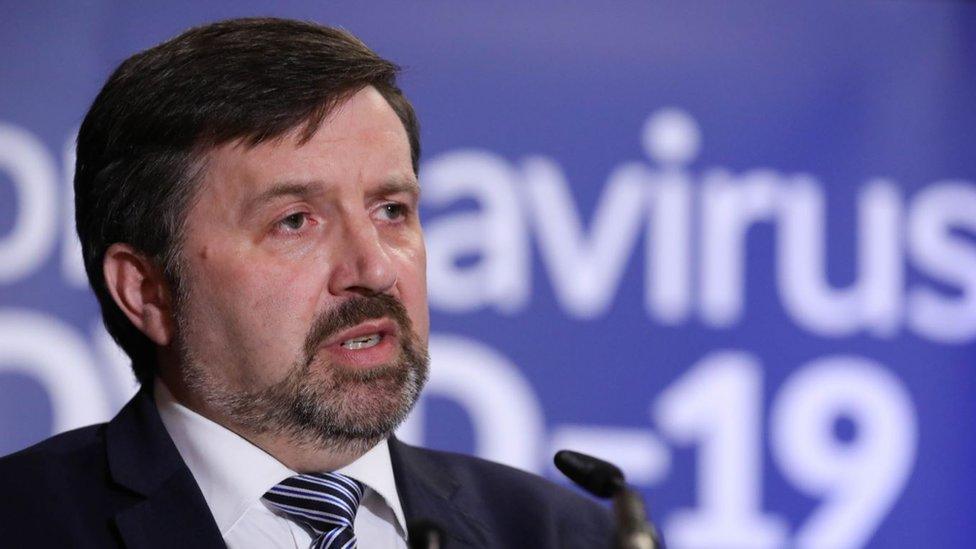
Robin Swann announced new localised restrictions last week
"Restrictions can and will be extended to other postcodes if that is required. I want to make it clear that I will not hesitate to make tighter restrictions if they are needed."
He added that NI is "on a knife edge" and that "other ways could've been found to reduce contacts between people and they would have had their challenges too".
When asked why people can meet in a pub or restaurant but not a house, Mr Swann replied that "contacts in public places can be managed and structured".
"There are no easy answers to this situation we are facing.
"I don't want to restrict anyone's daily movements and I certainly do not want to go back to another lockdown but, by the same token, I'm not going to sit on my hands and hope for the best when our Covid-19 rates are rising rapidly."
- Published10 September 2020
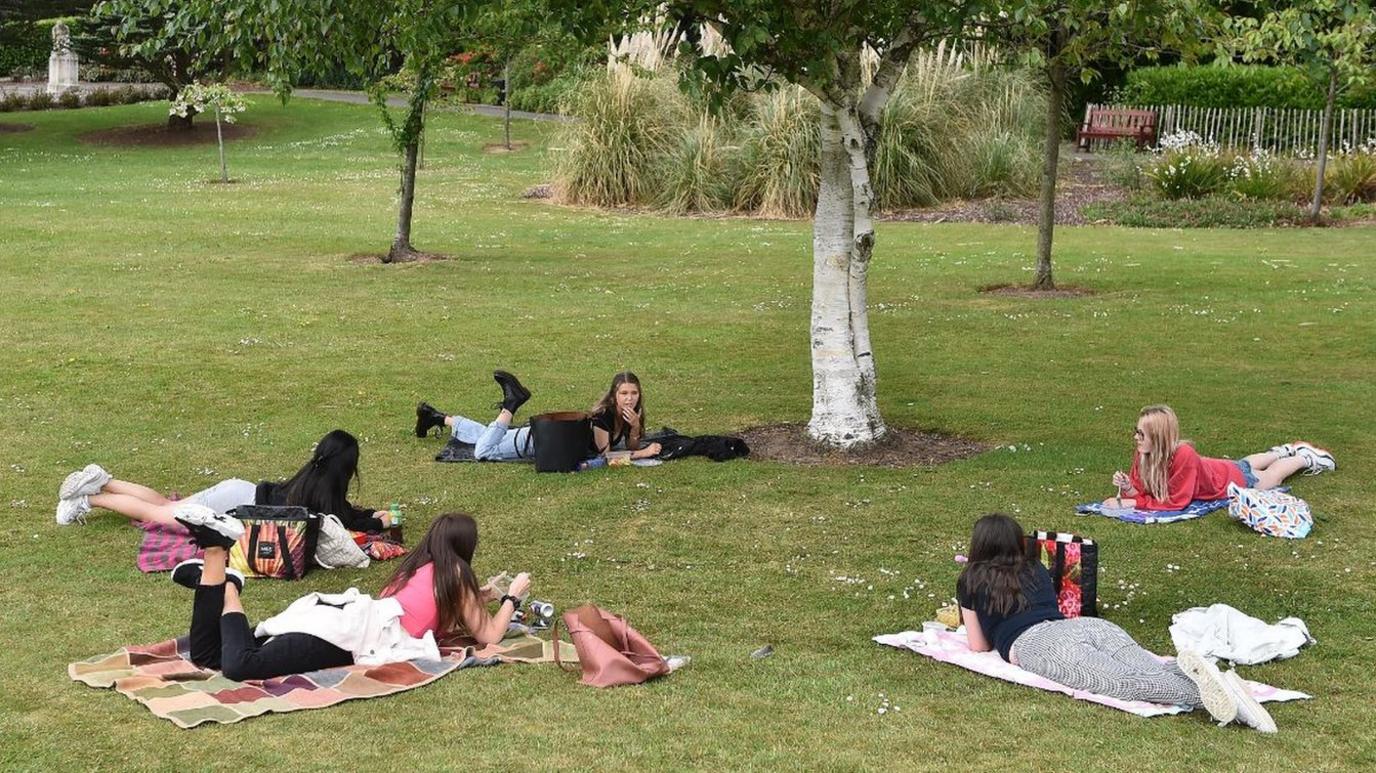
- Published14 September 2020
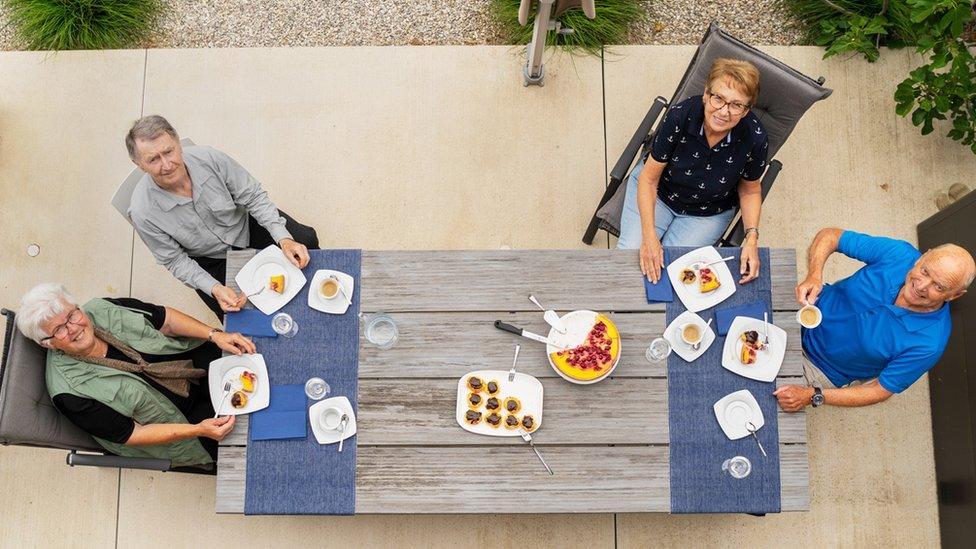
- Published29 July 2021
